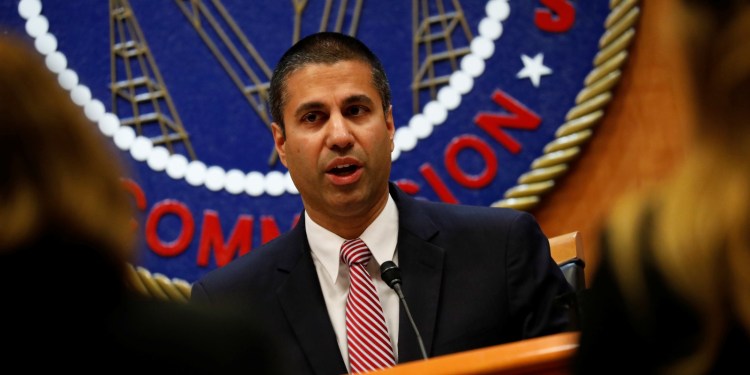As expected, the U.S. Federal Communications Commission approved an order today to streamline the national approval process for deploying small cells, advanced radio hardware required for next-generation 5G cellular networks. The vote was 3-2: FCC Chairman Ajit Pai and Commissioners Michael O’Rielly and Brendan Carr approved, with Commissioners Mignon Clyburn and Jessica Rosenworcel dissenting.
Simplifying the small cell approval process has been framed by Pai and Carr as critical to maintaining U.S. leadership in “the race to 5G.” Until now, all small cell installations were required to be reviewed under both the National Environmental Policy Act (NEPA) and National Historic Preservation Act (NHPA), which previously were intended for large utility towers. In comments preceding the vote, Pai noted that deploying a single small cell in downtown Milwaukee cost $15,000.
According to Carr, though only 0.33 percent of the federal reviews actually resulted in changes to planned deployments, they consumed tens of millions of dollars each year and caused significant deployment delays. Nearly 30 percent of the cost of deploying each small cell came from NEPA and NHPA reviews, which if eliminated would save “at least $1.56 billion” during the 5G rollout process.
The FCC order exempts most small cells from NEPA and NHPA reviews, while preserving — but streamlining — the process for the larger cellular towers used by past networks. Under the order, a clock will now start ticking on the FCC review process, preventing approvals from demanding undue time.
June 5th: The AI Audit in NYC
Join us next week in NYC to engage with top executive leaders, delving into strategies for auditing AI models to ensure fairness, optimal performance, and ethical compliance across diverse organizations. Secure your attendance for this exclusive invite-only event.
Today’s vote was not particularly controversial, but did raise concerns from state and local officials, as well as Indian tribal governments, which the FCC addressed. Carr noted that the order doesn’t restrict localities’ rights to review and approve small cell deployments; the FCC may take up that issue separately. Additionally, small cells planned for deployment on tribal lands will continue to receive historic reviews, and tribal officials will receive better and faster information to speed deployments on their lands.
In recent months, American, Chinese, and Korean companies that cooperated in developing 5G standards have become increasingly focused on being first — or best — to deploy the new wireless technology. U.S. carriers Verizon and AT&T have both announced multi-city 5G deployments for the second half of 2018, and U.S. legislators have coordinated with the FCC to speed up regulatory approvals, exasperating foreign rivals.
In a statement, Carr said that foreign governments knew “the United States led the world in 4G. They are eager to leapfrog us to 5G. A central part of their 5G agenda is to update their infrastructure deployment rules. That’s why today’s vote is so important — it’s a chance for the FCC to demonstrate our commitment to seeing the United States and American consumers win the race to 5G.”
The FCC order, titled “Accelerating Wireless Broadband Deployment by Removing Barriers to Infrastructure Investment” (WT Docket No. 17-79), will be available at the Federal Register online.


